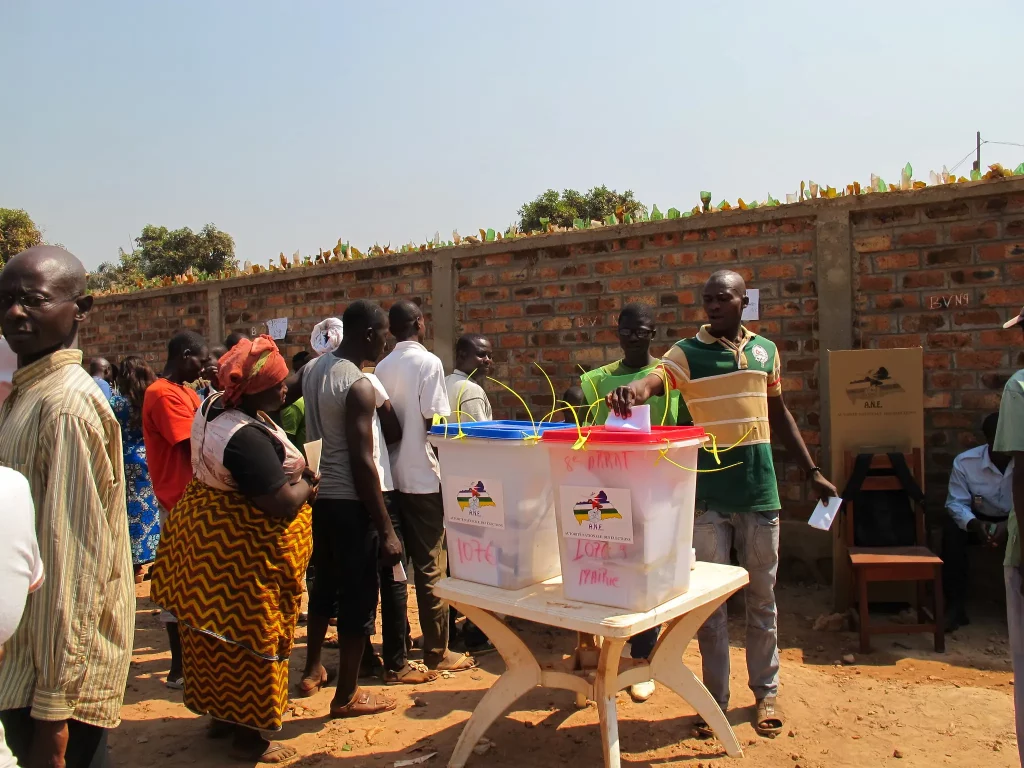SELECT is a knowledge hub and programming tool in one with programming strategies and activities; informed by an inclusive and consultative research process that identified the challenges and potential solutions in relation to the elections-conflict prevention nexus.
SELECT is the fruit of an initial research phase which concluded that current programming around elections would benefit from a reinforced preventive perspective and long-term activities to address election-related violence.
Furthermore, SELECT builds on the acknowledgement that there is a need to bring together the various communities of practice while embedding electoral support in broader governance work.
Against this background, the overall objective of the “Sustaining Peace during Electoral Process” (SELECT) project is to build the capacity of both national electoral stakeholders and international partners to:
The online knowledge hub has been established to provide practitioners with the latest research, policies, best practices, lessons and examples. This will allow you as a practitioner working in the field of governance, electoral assistance or conflict prevention to benefit from an easily accessible and centralized core body of work to facilitate programming and implementation in any specific country.
The knowledge hub will be regularly updated and expanded. Every activity included in the hub can be customized to country-specific needs and subsequently implemented at country level.

For more information see .
The hub will further list an overall research report for each topic, which analyses in depth the relationship between the topic and the potential for election-related violence. It includes both secondary as well as primary sources as it reflects the outcomes of the consultations and surveys organized under SELECT.
Each topic/pillar will comprise of various programmatic activities. For each activity, specific information will be accessible including the description, implementation considerations, limitations and challenges, resources and examples.
The information provided should allow you to get a general understanding of what implementation of such an activity would entail, what the challenges and limitations are and how it has (successfully) been implemented in other contexts. It thereby serves as the starting point for implementation: you share a challenging problem, we provide you with a list of innovate solutions.
Every activity can be customized to country-specific needs and subsequent implementation, as the activities incorporated have been included due to their practical meaning and applicability in different parts of the world.
Every activity will also include programming considerations reflecting on applicability in a variety of contexts.
The Programming Inclusive Governance section provides practitioners with a programming strategy where the heavy lifting electoral assistance may no longer be required, but where challenges continue to exist and where the deepening of democratic institutions and civic space would enhance accountability, transparency and inclusiveness, with the end goal of sustaining peace.
This calls for between the ballot support to create an enabling and healthy environment for political growth, including involvement in e.g. conflict prevention, disinformation, parliaments and local assemblies, capacity of institutions, civil society engagement. This must be done well ahead of the heated electoral period, which may lay bare entrenched challenges but does not provide for the timeframe to address them in a sustainable manner.
‘Programming Inclusive Governance’ supports practitioners to formulate electoral assistance with additional relevant governance activities aimed at creating conducive conditions for accepted elections.

For more informations contact : [email protected]
follow us on Twitter